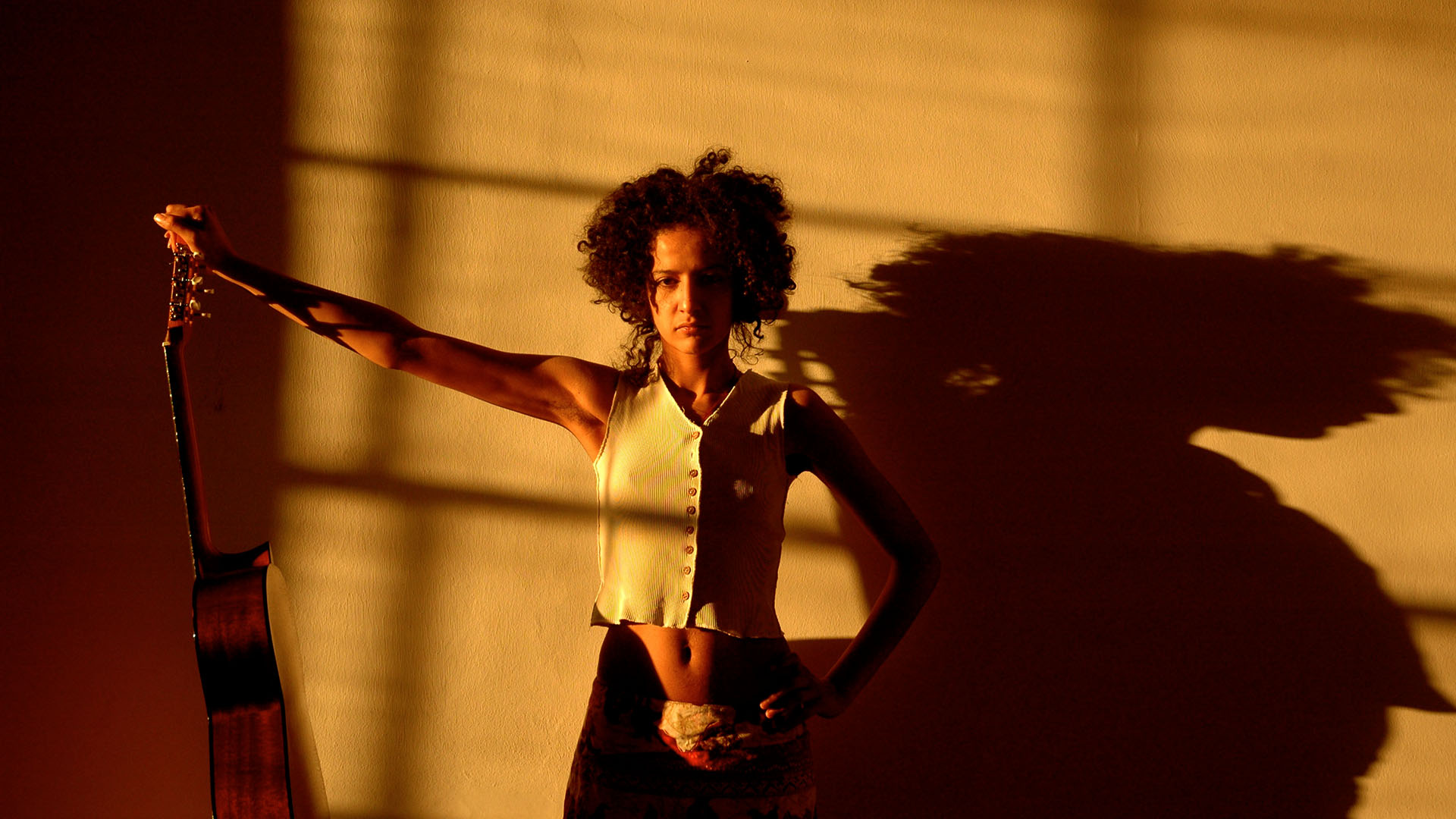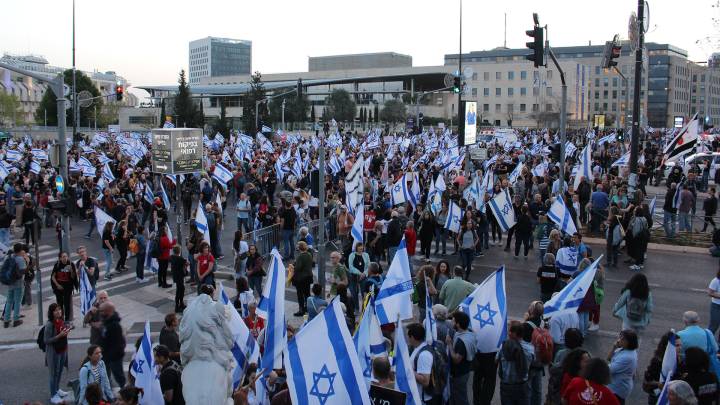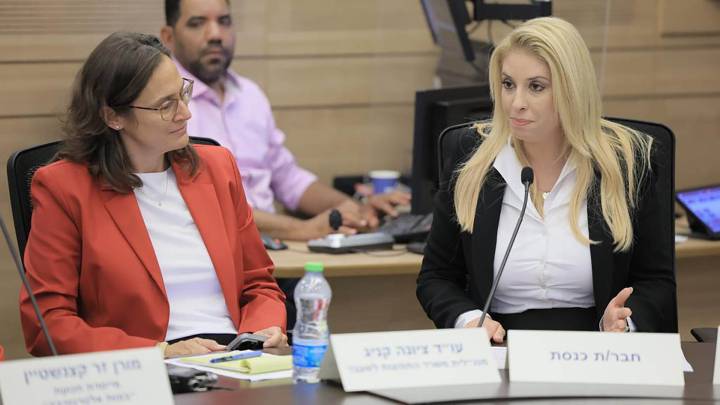Neysatu, the queen of the Tunisian underground music scene, speaks to zenith before her latest concert in Berlin about rediscovering her Amazigh heritage, her musical Africanity, and the perils of performing under Ben Ali’s dictatorship.
Neysatu is the stage name of Tunisian avant-garde musician Badiâa Bouhrizi. She has been described as the Bel Canto of North Africa’s new sound, with her unique blend of minimalism, reggae vibes, and powerful lyrics. To many Tunisians though she is known by another name, miltazema, the Arabic word for ‘committed’, because her music frequently tackles the themes of injustice, inequality and oppression.
zenith: What is the story behind the name Neysatu?
Neysatu: Neysatu was invented when I was a student in Paris. My name is Badiâa in Arabic and when French people introduced me on stage, they always got it wrong. Neysatu is a play on Tunisiyya or Tunisienne, inspired by the sounds of Malian music which I was into at the time.
Your track ‘Behind the Mountain Peaks’ evokes the beauty of the Tunisian landscapes. Which part of the country do you come from?
I’m originally from the area surrounding Mount Wargha, which is in El Kef, a province in the northwest of the country. I’m from the Chaoui community. We are in both Tunisia and Algeria, which tells you that there were once no borders between the two countries. We also learnt that really late. We are not taught in school that there used to be a land called Numidia, which was Morocco, Algeria, Tunisia and Libya and even parts of Mali which were the Amazigh native lands. We only learnt about French or Arabs. Back then nobody ever used the terms like ‘native inhabitants’ of North Africa. But I can really feel the African culture in music and other forms of art. I can see a huge difference between the Tunisian culture and the Arab culture in terms of rhythm and scale. We know about the Arabic and Turkish influences in music, but we have a more African way of seeing things.
Another one of your tracks, ‘La Niña Imazighen’, hints at the importance of your Amazigh upbringing. What influence have the sounds of this community had on your music?
I didn’t realise until I was maybe 25 that a lot of my singing is influenced by Amazigh music. My family is of Amazigh origin, that’s our culture. We speak Arabic but the cultural aesthetics are all Amazigh references. In the Tunisian language there’s a lot of Amazigh words which we are only rediscovering now because the Amazigh language was forbidden by President Bourguiba after the independence. The justification was not to divide the Tunisian people, so let’s have one national language. But I think that was a bad decision, because it removed a major component of Tunisian culture.
‘In music especially there is a lot of fusion between Morocco, Algeria, Tunisia and sub-Saharan Africa’
Do you think that African influences in North African music have been overlooked?
Absolutely. Now people in Algeria, Morocco and Tunisia are coming together in an African movement. Stupidly enough, there’s also racism in these countries, so it’s also used by the new generation as a way of fighting racism. It also reminds people of their collective power; we have more in common. Historically, we are closer to Africa rather than to the Arab world. Tunisia is closer to Congo or Mali than Palestine.
Is this a minority opinion in Tunisia?
It’s really becoming a movement. American black music has played a major role in this. As black identity internationally is not only the black stereotype anymore, there are more stories of success, so people can identify with them. There is now pride in identifying with our Africanity. We need to realise that it’s stupid for us Tunisians to say ‘Oh, the Africans …’ Stop saying that, you’re African. In music especially there is a lot of fusion between Morocco, Algeria, Tunisia and sub-Saharan Africa. Then you realise what we call specifically Tunisian sounds are actually African. When I play Tunisian rhythms with a guy from Senegal, he says: ‘Oh, that’s a phrase.’ And then he just plays the rest of it. That sentence is actually part of a bigger sentence. And he plays it. I’ve been in workshops with people from Egypt, Iraq, Lebanon, Syria and even Azerbaijan, and it was more difficult to jam with them than with African artists. There’s this collectiveness that is the African music which is not the case with music in the Arab region, where individuality is more important than the connectedness. It’s not necessarily a bad thing.
Can you point to any specific African influences on your own work?
Oumou Sangaré, when I discovered her it was like a hit to the chest in a good way. There are also Toumani Diabaté and Ballaké Sissoko. Outside Africa I would say Bjork. Bjork to me represents feminine liberty. Her music is an authentic expression with no rules. Yet you can feel that she’s a meticulous composer. She’s still not recognised for what she has brought to music. Kamilya Jubran is also a major influence. She’s a beautiful composer, very experimental. She’s an artist that you cannot place anywhere else than in Palestine. When she starts singing, you know, she’s Palestinian and I love that about her.
‘I appreciated that courage, though it was shocking to see so rappers in jail, including my brother’
Are there any Tunisian artists you like at the moment?
Among the new generation I really like Gultrah Sound System, it’s a Tunisian reggae band. I think they have been the best band in Tunisia for the last ten years.
How did you get into music?
I started out in a rock band called ‘Black Angels’ when I was around 17 years old. We were doing covers of Pink Floyd. It was cool. I could play rebellious things and be dressed up sexily. But in Tunis, whenever there was a concert, there would always be cops around. And they would then tell you to stop doing things like that. I also sang as a child in a Maalouf choir. Maalouf, a traditional North Africa form of Andalusian classical music, is not at all in my family like it is for other Tunisians. I have friends of mine who come from families where that’s what they sing at home for weddings. That’s when I realised, I’m Amazigh. The collectiveness of choral singing was very interesting. Everyone had a beautiful voice but in a different way. I also learned to love that part of heritage of my country that I only knew superficially before.
What was the underground scene in Tunisia like when you first started out?
The scene at that time was really beautiful. It’s not like that today, back then there really was an underground scene in Tunis. The community was centred on concerts of two or three hundred people every week. So many people thought we were being subversive, but we were relying on the intelligence of the audience to get our message across. Sometimes though you have to stop and say things how they are. That started maybe in 2005, with the emergence of rappers on the scene. They were taken by the police and beaten up. Yet they we still saying ‘fuck the police, fuck the government, fuck the president, we are oppressed’. I appreciated that courage, though it was shocking to see so rappers in jail, including my brother, Khaled Bouhrizi. He was arrested for having marijuana on him. He was in prison for six years and was seriously tortured. But he’s ok now, he’s out.
What was it like being a musician under Ben Ali?
Under Ben Ali, they started looking for small illegal things that you do. That could be drugs or drinking. Drinking wasn’t illegal. But if you got caught drunk, causing a scene in the street, it would be considered illegal. Even now the police will stop me when I’m going home in a taxi and I’m a little drunk. What are they asking me about? I say to them: ‘I’m an adult, I know the law and my rights. I’m not telling you where I’m going. I’m not giving you money.’ It usually works. The police didn’t say to me I wasn’t allowed to perform. I played two concerts after the first revolt in Gafsa in 2008. The police arrived in 4x4s to shut one event down, and afterwards they started intimidating people coming to concerts. I remember I was invited to play again in Tunis. But the organisers cancelled because they didn’t receive the authorisation to go ahead. I assumed it was because of me. And then once while I was in Paris, I received a threat, that was really scary. I still don’t understand now how they got my number.
‘In France I could smoke on the street. I have walked home at 2 o’clock in the morning without fear. That’s not possible in Tunisia’
When did it become easier for you to perform in Tunisia?
Straight after the revolution. I didn’t perform in Tunisia between September 2008 and 2011. In 2011 I also played in Egypt, relatively soon after the revolution. It was a year of euphoria across the whole Arab world, even for those who were still living under dictatorship. Now it feels like we’ve regressed about 20 years.
Did you leave Tunisia because of the limited opportunities for musicians there?
I didn’t leave Tunisia to be a musician, I had enough of being a girl in Tunisia. I was touched for the umpteenth time by a guy in the metro. I told him to stop. He pushed me and tried to hit me. I hit back. Then people immobilised me. I was the victim. You can see that I’m physically small. They were shocked that I had to fight to exist. Don’t fucking touch me. That’s not much to ask. There was a woman who passed by and said: ‘Come on, take it. He’s like your brother.’ And I lost it. In France I didn’t even have to think about it. I could smoke on the street. I have walked home at 2 o’clock in the morning without fear. That’s not possible in Tunisia.
Having lived in both places how do you see the relationship between Tunisia and former colonial power France?
Some people especially in Morocco are building initiatives and cultural exchanges between North Africa and sub-Saharan Africa. Even if you looked at airlines, to go from Tunisia to Mali, you have to go through France. I realised that especially after the revolution we were never really independent. The army left, but politically and economically we weren’t independent. Still now they do have contracts on oil and salt that are beyond cheap. It’s not trade. It’s colonisation. It’s not possible to sell things for less than a hundredth of a cent. For us to get to where we want to be, we first need to cut colonial ties with France in particular. France acts sometimes as if we are still a colony. Some party leaders would go to see the French ambassador to discuss national affairs.
Tunisia’s Truth and Dignity Commission released its findings last year. Is reconciliation after the crimes of dictatorship possible in the country?
People need to be open to different points of view. I think reconciliation will be possible. I have Salafist friends. When you see their beards, you might get scared. But we talk and we laugh together. I sometimes smoke and drink. The only thing we don’t do is hug and kiss, but we’re not fighting all the time. People like me are in the minority. Tunisians should not forget the majority of Muslims really are believers but not extremists. They like music. They go to the beach. We have aunties who are in bikinis in the daytime, and then they go to pray. Journalists and artists are louder but when it comes to voting, everyone’s voice is equal. We shouldn’t fool ourselves. Singing doesn’t grow plants for the market.
Your Arabic cover of Bob Marley’s ‘War’ emphasises the concepts of social justice and freedom. How important are these themes to your work?
The concept of justice is connected to absolute love. You cannot have peace without some kind of justice. Social injustice is not just a concept, it’s something that you can see every day. You see people working 14 hours who don’t even have money for the bus. I’ve known members of my own family who couldn’t afford to take the bus to work and walked five kilometres every day in return for a salary. Working in a factory that isn’t even owned by a Tunisian. Somehow you always return to the coloniser. The concept of temporary workers for example was introduced by French investors in the 80s under the supervision of Ben Ali. At what cost? So many are left without social security and no money for their retirement. Even engineers and doctors don’t earn enough to live decently. A friend of mine is a paediatric surgeon. She refused to work privately, and she can’t even afford a new car. I still have hope because people are conscious that the era of neoliberalism is finished.
Lina Ben Mhenni, the iconic activist of the Tunisian revolution, died recently. What was her impact on Tunisian society?
She was a friend. I knew her since 2008. When people are gone, you realise who they really were. Before, nobody ever called her the voice of the revolution, and then you realise she was. You can see that because she was given a state funeral. I’m still shocked that she’s gone. She refused to get treatment outside of the country or privately, she insisted on being treated like any other Tunisian citizen in public hospitals. She did what she did with integrity, there was no question of her being a woman or a man. Not only leftists were really sad about her passing away.
Neysatu is the stage name of the Tunisian singer-songwriter Badiâa Bouhrizi. She won the Arab alternative song award for her song ‘Ila Selma’, based on a poem by the Palestinian poet Fadwa Tuqan, and she also recently won the ‘Social Inclusion’ prize at the Aga Khan Music Awards. Her new albums, ‘KahruMusiqa’ and ‘Love/Revolt’ will be released in autumn 2020.




